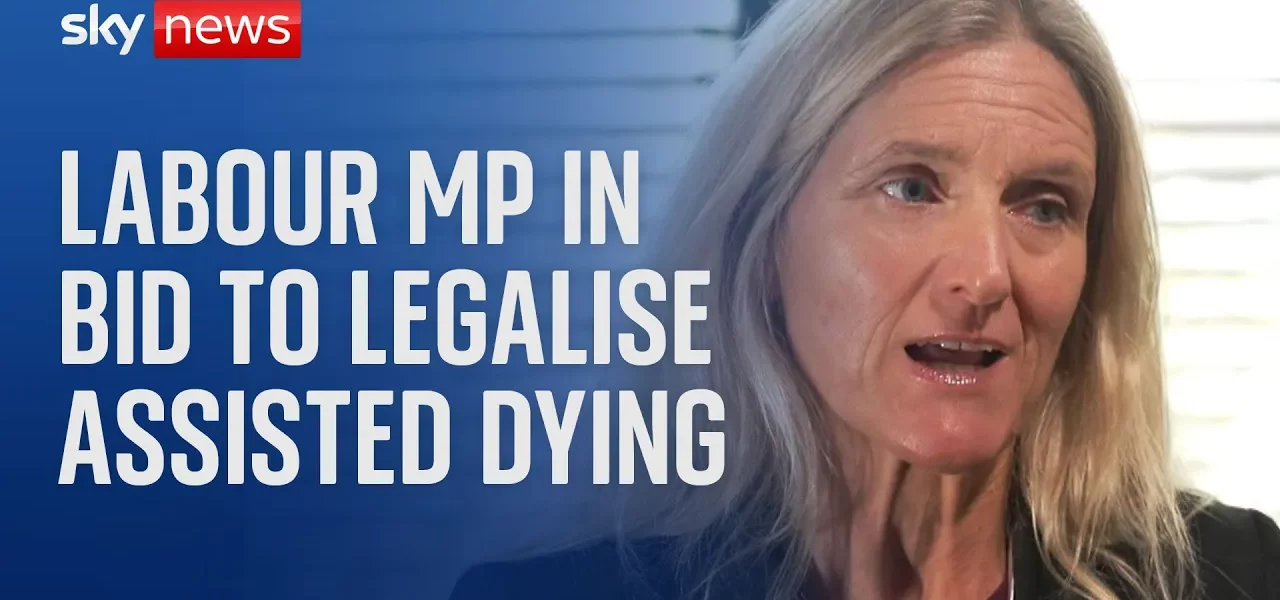The Emotional Journey of Assisted Dying: A Personal Perspective

This article delves into the poignant experience of assisted dying, highlighting the emotional narrative of a woman who supported her husband through his final days and the broader implications of such legislation in society.
Introduction
Assisted dying remains one of the most contentious topics in contemporary medical ethics and law. For many, the decision to end life on one’s own terms is deeply personal and often surrounded by complex emotions and societal implications. This article shares the heartfelt story of a woman who assisted her husband, Jeff, as he faced the harrowing realities of motor neuron disease. Through their journey, we explore not only the emotional weight of such decisions but also the ongoing discussions surrounding assisted dying legislation.
The Personal Story of Jeff and Anne
Anne’s experience with her husband, Jeff, who suffered from motor neuron disease, serves as a powerful narrative that sheds light on the realities of assisted dying.
Life with Motor Neuron Disease
Jeff was paralyzed from the neck down, requiring full assistance in every aspect of his life. This condition not only affected him physically but also placed an immense emotional burden on both him and Anne. Key aspects of their life included:
- Complete dependency for daily tasks such as feeding and toileting.
- Traveling to Switzerland for assisted dying options.
- Creating a supportive environment with family and friends during his final moments.
The Final Moments
In the serene surroundings of a Swiss clinic, surrounded by loved ones, Jeff made the choice to end his suffering. Anne reflected on this moment: “It hit me when he took the medication, and he died in my arms telling me he loved me.” Such moments encapsulate the profound emotional connection and the comfort that can accompany such difficult decisions.
The Legal Landscape of Assisted Dying
The discussion surrounding assisted dying is not solely about individual stories; it also encompasses a broader legal and ethical framework. Anne’s story raises important questions about the current laws governing assisted dying.
Potential Changes to Legislation
Anne faced the possibility of a 14-year prison sentence for her actions, which brings to light the ongoing debates about legislation. Key points include:
- The introduction of bills aimed at legalizing assisted dying.
- The concerns surrounding the “slippery slope” argument, which suggests that initial legislation for terminally ill patients could expand to include other groups.
- Calls for comprehensive debates to address these concerns and establish clear protections and safeguards.
Arguments for and Against Assisted Dying
As the debate continues, opinions are divided:
- Proponents argue for personal autonomy and the right to choose a dignified death.
- Opponents express concerns about potential neglect of palliative care and the vulnerability of certain populations.
The Role of Palliative Care
One of the most significant concerns regarding the legalization of assisted dying is its impact on palliative care services. Many advocates for palliative care fear that:
- The focus on assisted dying might detract from the funding and support needed for comprehensive palliative care.
- Vulnerable individuals might feel pressured to choose assisted dying over available palliative options.
Anne argues that despite her loss, the freedom to choose how and when to die should be available to everyone facing similar agonizing decisions.
Conclusion
The journey of Anne and Jeff illustrates the complex emotional landscape of assisted dying. As society grapples with the moral implications and legal frameworks surrounding this sensitive issue, personal narratives like theirs play a crucial role in shaping the discussion. The ongoing debate about assisted dying laws highlights the need for balanced perspectives that respect individual choices while ensuring robust support systems are in place. It is essential to continue these conversations, advocating for both patient rights and the integrity of palliative care services. For anyone interested in this topic, we encourage you to engage in discussions and educate yourself on the legal and ethical dimensions of assisted dying.
“`




